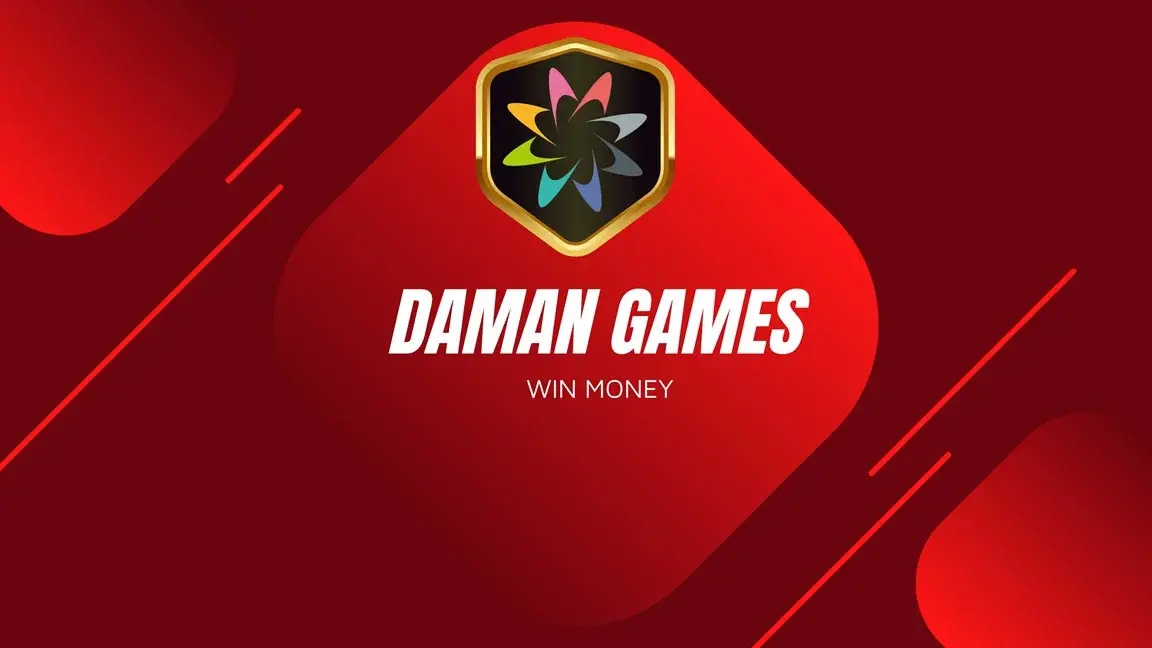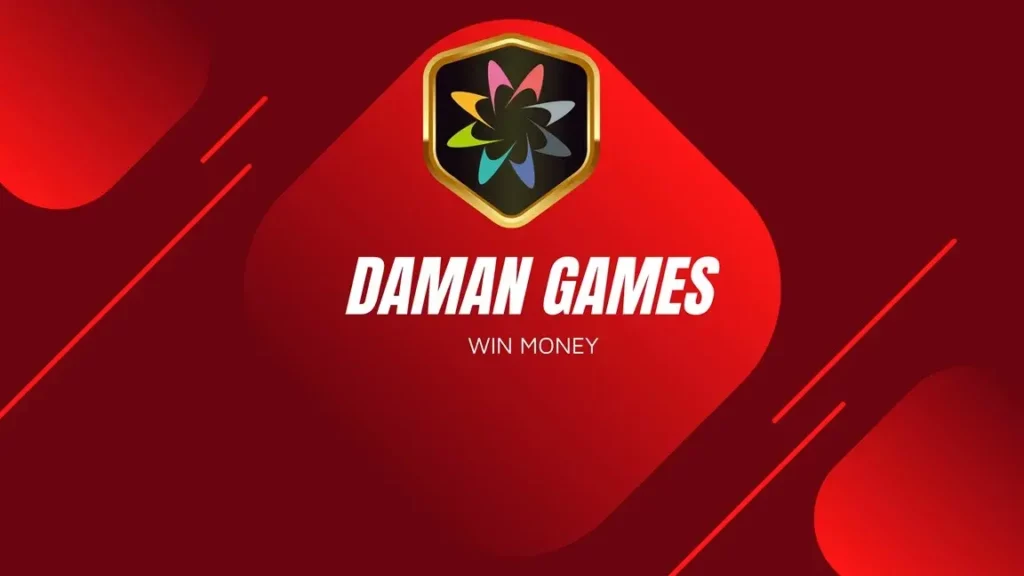Tournaments represent the pinnacle of competitive gaming on the Daman Game platform, offering players the chance to test their skills against others, win substantial prizes, and earn recognition in the gaming community. Whether you’re a tournament veteran looking to refine your approach or a newcomer curious about entering your first competition, this comprehensive guide covers everything you need to know about participating and succeeding in Daman Game tournaments.
Understanding Daman Game Tournament Structures
Before diving into tournament play, it’s essential to understand the various formats and structures you’ll encounter on the Daman Game platform. Each tournament type offers a unique experience and requires different strategies to succeed.
Common Tournament Formats
The platform hosts several distinct tournament structures, each with its own rules and progression system:
- Elimination Tournaments: Players are eliminated after losing, with winners advancing to the next round until a champion emerges. These include single-elimination (one loss and you’re out) and double-elimination (two losses required for elimination).
- Round Robin: Every participant plays against all other participants once, with rankings determined by total points accumulated.
- Swiss System: A non-elimination format where players with similar records face each other in successive rounds, allowing everyone to play all scheduled rounds regardless of losses.
- Sit and Go: Small tournaments that begin as soon as enough players register, rather than at a scheduled time.
- Multi-Table Tournaments (MTTs): Large-scale events with numerous participants competing across multiple virtual tables.
- Progressive Knockout: Tournaments where you collect bounties for eliminating opponents, with each player’s bounty value increasing as they eliminate others.
- Satellite Tournaments: Competitions where the prize is entry to a larger, more prestigious tournament rather than direct monetary rewards.
Understanding the format of a tournament before entering is crucial as it impacts everything from time commitment to strategy and bankroll management.
Tournament Stages and Progression
Most Daman Game tournaments follow a predictable progression through several distinct stages:
- Registration Period: When players can sign up for the tournament, often with early bird incentives.
- Late Registration: An extended period where players can still join after the tournament has begun, usually with adjusted starting conditions.
- Early Stages: The initial rounds where the field is largest and play tends to be more cautious.
- Middle Stages: As participants are eliminated, the competition intensifies and strategic adjustments become necessary.
- Bubble Phase: The critical period just before reaching the paid positions, when play often becomes extremely tight.
- Money Stages: Once in the paid positions, strategies shift as players aim for higher placements and bigger prizes.
- Final Table: The culmination of the tournament with the highest stakes and most intense competition.
Each stage requires different approaches and adaptations, with successful tournament players adjusting their strategy as the event progresses.
Tournament Entry and Participation
Entering tournaments on the platform is straightforward once you’ve completed the Daman Game Register process and set up your account. Here’s what you need to know about accessing and joining tournaments.
Finding and Registering for Tournaments
Locating and entering tournaments is simple with these steps:
- Log in to your account using the secure Daman Game Login process
- Navigate to the “Tournaments” section from the main menu
- Browse available tournaments filtered by game type, buy-in level, start time, or prize pool
- Select a tournament to view detailed information including structure, rules, and prizes
- Click “Register” and confirm your entry
- For tournaments with entry fees, complete the payment process
- Receive confirmation of your registration and tournament details
Many tournaments have a countdown timer showing when they’ll begin, along with the current number of registered players and the guaranteed prize pool information.
Understanding Buy-ins and Entry Fees
Tournament entry typically involves financial considerations that players should understand:
- Buy-in: The main cost to enter the tournament, which goes into the prize pool
- Entry Fee: An additional amount (typically 10% of the buy-in) that goes to the platform as a hosting fee
- Re-buys: Optional additional buy-ins available in some tournaments if you lose your chips
- Add-ons: Extra chips available for purchase at specific times during certain tournaments
- Satellite Entries: Tournament entries won through qualifying events rather than direct payment
- Freerolls: Tournaments with no entry fee but real prizes, often sponsored or promotional
Carefully consider these costs when selecting tournaments, and always practice responsible bankroll management by only entering events appropriate for your budget.
Tournament Strategy Fundamentals
Success in Daman Game tournaments requires more than just understanding the basic rules of the games—it demands strategic thinking and adaptation throughout the event.
Early Stage Strategies
The beginning phase of tournaments requires a particular approach:
- Play conservatively with premium hands rather than taking unnecessary risks
- Observe opponents’ playing styles to identify patterns you can exploit later
- Preserve your chip stack rather than attempting aggressive growth
- Take advantage of overly cautious players who fold too frequently
- Build a table image that you can leverage in later stages
- Avoid confrontations with large stacks unless you have very strong hands
- Use position to your advantage for more controlled play
The early stages are about survival and information gathering more than aggressive play, as there’s little pressure from increasing blinds or antes.
Middle and Late Stage Adjustments
As the tournament progresses, your strategy must evolve:
- Increase aggression as blinds rise relative to average stack sizes
- Look for opportunities to attack players under bubble pressure
- Pay close attention to stack sizes and adjust your approach accordingly
- Begin incorporating more bluffs and semi-bluffs into your play
- Focus on stealing blinds and antes when in late position
- Be aware of ICM (Independent Chip Model) considerations as you approach the money
- Adapt to the changing dynamics as the field narrows
Successful tournament players recognize when to shift gears from conservative to aggressive play based on tournament conditions rather than sticking to a single approach throughout.
Advanced Tournament Tactics
Beyond the fundamentals, mastering these advanced concepts can significantly improve your tournament results.
Stack Size Management
Your chip stack dictates your strategic options, requiring different approaches based on your relative position:
- Big Stack Strategy
- When you have significantly more chips than the average, you can apply pressure to medium and short stacks, force difficult decisions, and take calculated risks that others can’t afford.
- Medium Stack Approach
- With an average stack, balance is key—play selectively aggressive, look for spots to accumulate chips without risking elimination, and be particularly aware of pay jump considerations.
- Short Stack Tactics
- When short-stacked, focus on finding spots to double up, look for push/fold situations with positive expected value, and be prepared to commit with marginal hands before blinds reduce your options.
- Critical Ratios
- Understand the M-ratio (your stack divided by the total blinds and antes per round) and use it to guide your level of aggression—generally becoming more aggressive as your M-ratio drops below 10.
Effective stack management is arguably the most important advanced skill in tournament play, as it influences every decision from hand selection to bet sizing.
Table Dynamics and Position
Understanding and exploiting table dynamics provides a significant edge:
- Identify and categorize players (tight, loose, aggressive, passive) to predict reactions
- Exploit predictable patterns in opponents’ play
- Maximize value from position by playing more hands when acting last
- Adjust strategy based on the playing styles to your left and right
- Recognize when table dynamics shift, such as when aggressive players are eliminated
- Use image manipulation to set up plays for later stages
- Pay attention to stack sizes around the table and how they influence decisions
Your position relative to other players and understanding how different player types interact creates exploitable opportunities throughout the tournament.

Tournament Types on Daman Game
The platform offers a diverse range of tournament types catering to different preferences, skill levels, and time commitments.
Scheduled Tournaments
These predetermined events offer structure and anticipation:
- Daily Tournaments: Regular competitions that occur at the same time each day
- Weekly Majors: Larger events with bigger prize pools that run on specific days of the week
- Weekend Specials: Premium tournaments with enhanced structures scheduled for weekend play
- Monthly Championships: Prestigious events with substantial prizes held once per month
- Seasonal Series: Connected tournaments forming a championship series over several weeks
- Holiday Specials: Themed tournaments with increased prize pools during holiday periods
Scheduled tournaments allow for planning and preparation, with many players specifically adjusting their schedules to participate in the most valuable events.
On-Demand and Sit & Go Tournaments
For those seeking more flexibility, these options offer immediate play:
- Sit & Go Tournaments: Begin as soon as the required number of players register
- Turbo Events: Accelerated structures with faster blind increases for quicker completion
- Hyper Turbo: Ultra-fast tournaments that can be completed in under an hour
- Heads-Up Challenges: One-on-one competitions testing direct confrontation skills
- Multi-Table Sit & Gos: Larger on-demand tournaments with multiple tables
- Step Tournaments: Progressive events where winners advance to higher buy-in levels
These tournaments provide the perfect option for players with unpredictable schedules or those looking to get immediate tournament action without waiting for scheduled events.

Tournament Prizes and Rewards
Understanding the prize structure of tournaments helps inform strategic decisions and lets you evaluate the potential return on your entry fee investment.
Prize Pool Structures
Tournament prizes are typically distributed according to predetermined structures:
- Standard Payout Structures: Typically award prizes to the top 10-15% of finishers, with a significant portion going to first place
- Flat Payouts: Distribute prizes more evenly across a larger percentage of the field
- Top-Heavy Structures: Concentrate larger percentages of the prize pool among the very top finishers
- Guaranteed Prize Pools: Tournaments where the platform guarantees a minimum prize amount regardless of entry numbers
- Added Prize Pools: Events where the platform adds additional value beyond player buy-ins
- Bounty Rewards: Special prizes awarded for eliminating specific players or VIPs
Understanding the payout structure before entering helps inform your tournament strategy, particularly in the later stages when pay jumps become significant.
Non-Monetary Tournament Rewards
Beyond cash prizes, tournaments often offer additional incentives:
- Leaderboard Points: Contributing to seasonal or monthly rankings
- Trophy Achievements: Digital accolades displayed on your profile
- Satellite Entries: Qualification to larger, more prestigious tournaments
- Status Boosts: Accelerated progress in loyalty programs
- Special Badges: Visible recognitions of tournament achievements
- Exclusive Access: Entry to invitation-only events for champions
These additional rewards add extra value to tournament participation and help build your reputation within the community.
Preparing for Tournament Success
Proper preparation significantly increases your chances of tournament success on the Daman Game platform.
Physical and Mental Preparation
Tournament play can be mentally taxing, requiring specific preparation:
- Ensure adequate rest before lengthy tournaments to maintain focus
- Stay hydrated and plan for healthy snacks during breaks
- Eliminate potential distractions in your environment
- Practice mindfulness techniques to maintain emotional balance
- Schedule appropriate breaks during longer events
- Have a comfortable setup for extended play sessions
- Prepare mentally for the inevitable swings of tournament play
Physical and mental stamina are often overlooked aspects of tournament preparation but can make a significant difference in your performance, especially in longer events.
Game-Specific Tournament Strategies
Different games require specific tournament approaches:
Card Game Tournaments
- Poker: Focus on hand selection, positional awareness, and chip utility
- Teen Patti: Adapt aggressive patterns based on blind levels and opponent tendencies
- Rummy: Balance between defensive play and quick point accumulation
Casino Game Tournaments
- Blackjack: Adjust risk levels based on your tournament position rather than standard strategy
- Roulette: Consider bet sizing strategies specific to tournament formats
- Slots: Manage spin timing and bet sizes according to leaderboard position
Skill Game Tournaments
- Puzzle Games: Practice speed strategies for time-based scoring
- Strategy Games: Study opening sequences and endgame scenarios
- Arcade Tournaments: Master specific levels that yield maximum points
Game-specific knowledge combined with tournament strategy creates a powerful advantage that casual players often lack.
Tournament Etiquette and Rules
Understanding proper tournament behavior ensures a positive experience for all participants and helps avoid potential penalties.
Following Tournament Regulations
Adherence to platform rules is essential in tournament play:
- Familiarize yourself with the specific rules of each tournament before entering
- Understand time bank allocations and avoid excessive delays
- Know the policies regarding disconnections and technical issues
- Follow chat guidelines and maintain respectful communication
- Avoid any form of collusion or team play in individual tournaments
- Understand when breaks are permitted and their duration
- Be aware of penalties for rule violations
Tournament rules are designed to ensure fair play and consistent experiences across all participants, making them crucial to understand before competing.
Sportsmanship in Competitive Play
Good sportsmanship enhances the tournament experience:
- Congratulate winners and avoid negative comments when losing
- Avoid provocative or offensive language in tournament chat
- Accept unfortunate outcomes without excessive complaints
- Report suspected rule violations through proper channels rather than public accusations
- Be gracious when receiving good fortune in games with luck elements
- Avoid excessive celebration that might be perceived as taunting
- Represent yourself with dignity regardless of results
Maintaining good sportsmanship not only creates a better community atmosphere but can also help you maintain emotional balance and focus during tournaments.
Special Tournament Events on Daman Game
Beyond regular tournaments, Daman Game hosts special events that offer unique experiences and exceptional value.
Championship Series and Festivals
These premium events provide the ultimate tournament experience:
- Seasonal Championships: Multi-event series with combined leaderboards and substantial prizes
- Anniversary Festivals: Special celebration events marking platform milestones
- Monthly Championships: Flagship tournaments with enhanced structures and guarantees
- Holiday Specials: Themed events coinciding with major holidays
- Weekend Warriors Series: Connected tournaments running throughout weekends
- VIP Invitational Events: Exclusive tournaments for qualified players
These special events often feature larger prize pools, unique structures, and additional rewards beyond standard tournaments.
Satellite Qualification Pathways
For players looking to participate in high-buy-in events on a budget:
- Multi-Stage Satellites: Qualification tournaments that feed into progressively larger events
- Step Tournaments: Ladder-style qualification starting at low buy-ins
- Last Chance Qualifiers: Final opportunity satellites running shortly before main events
- Freeroll Qualifiers: No-cost entry tournaments awarding seats to paid events
- Points Race Qualification: Earning entry through consistent performance rather than single tournament results
Satellite pathways allow players to leverage skill rather than bankroll to access prestigious tournaments, potentially creating tremendous value opportunities.
Analyzing Your Tournament Performance
Continuous improvement requires honest assessment and strategic adjustments based on your results.
Tournament Result Tracking
Maintaining detailed records helps identify patterns and areas for improvement:
- Record basic statistics including buy-ins, finishes, and ROI
- Note tournament types where you perform best and worst
- Track performance at different stages (early, middle, late)
- Document significant hands or situations for later review
- Monitor performance trends over time
- Compare results across different game types
- Analyze variance and its impact on your results
Systematic tracking allows you to make data-driven decisions about which tournaments to enter and which areas of your game require the most attention.
Learning from Defeats and Victories
Every tournament provides learning opportunities regardless of outcome:
- Review critical decisions in tournaments without emotional attachment
- Identify patterns in situations where you consistently struggle
- Analyze successful tournaments to understand what went right
- Seek feedback from stronger players when possible
- Study advanced strategy resources specific to your preferred games
- Join community discussions about tournament strategy
- Consider working with a coach for personalized improvement
The most successful tournament players maintain a growth mindset, viewing each event as a learning opportunity rather than merely a chance to win prizes.
Conclusion: Your Tournament Journey
Tournaments on Daman Game offer some of the most exciting, challenging, and potentially rewarding experiences in online gaming. From the adrenaline rush of reaching a final table to the satisfaction of executing a perfect strategy, tournament play engages players on multiple levels beyond casual gaming.
Your tournament journey will likely include both thrilling victories and disappointing defeats, but with proper preparation, strategic thinking, and continuous improvement, you can steadily enhance your results over time. Remember that even the world’s best tournament players experience variance, and persistence through downswings is often what separates successful players from those who never reach their potential.
Whether you’re competing for substantial prizes in championship events or enjoying the unique format of smaller tournaments, the skills you develop through tournament play will enhance your overall gaming abilities and provide countless hours of engaging entertainment.
So register for your next tournament, apply the strategies and insights from this guide, and take your first or next step on the rewarding path of competitive gaming on the Daman Game platform. Good luck at the tables!

